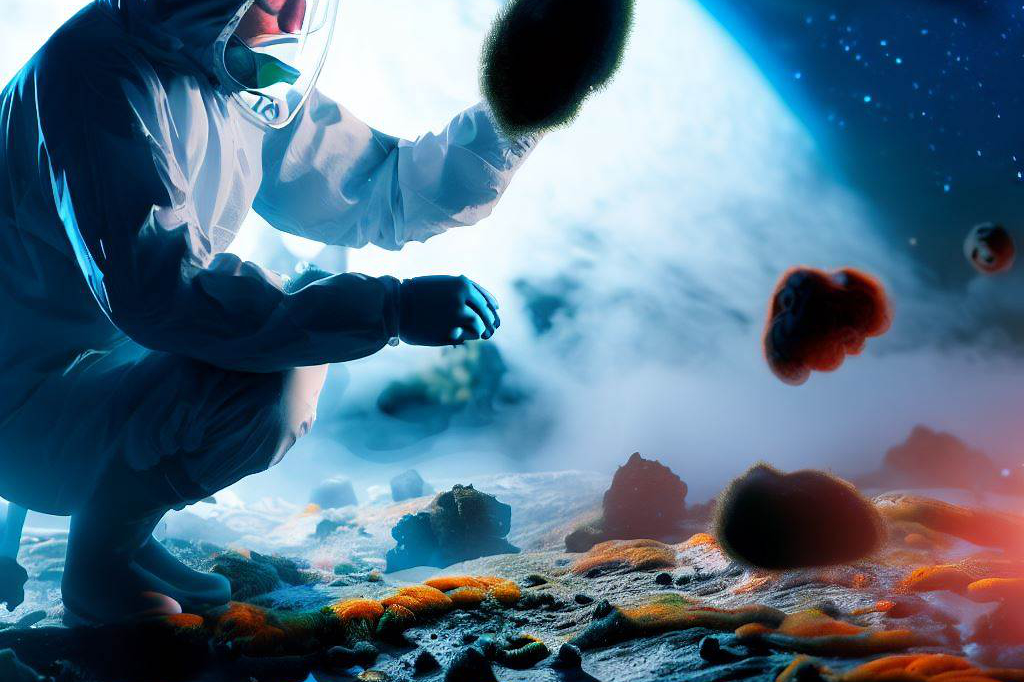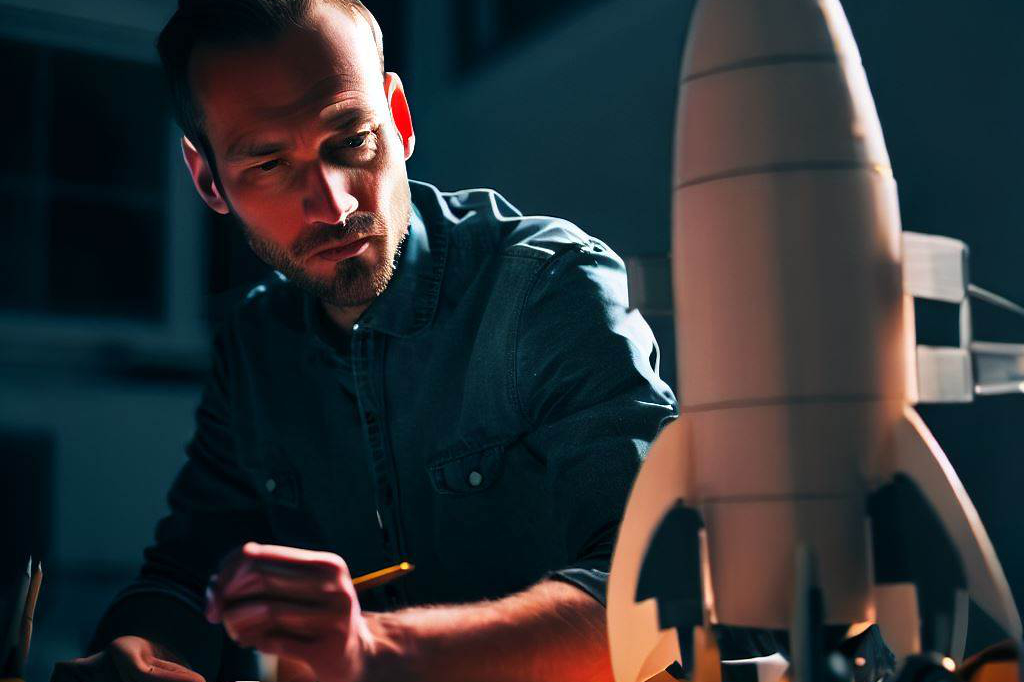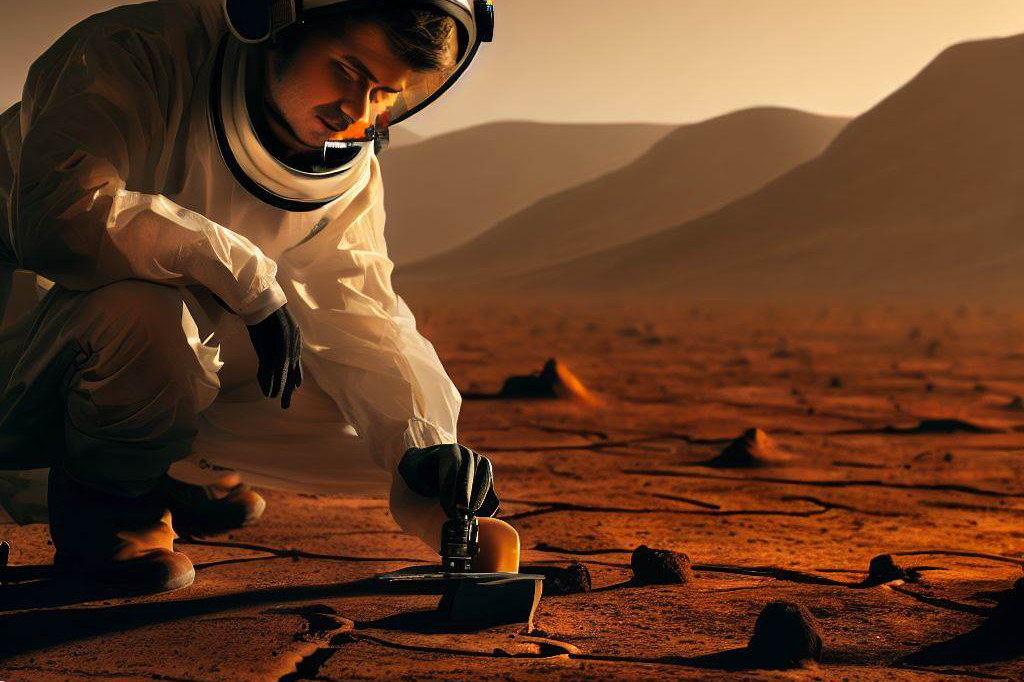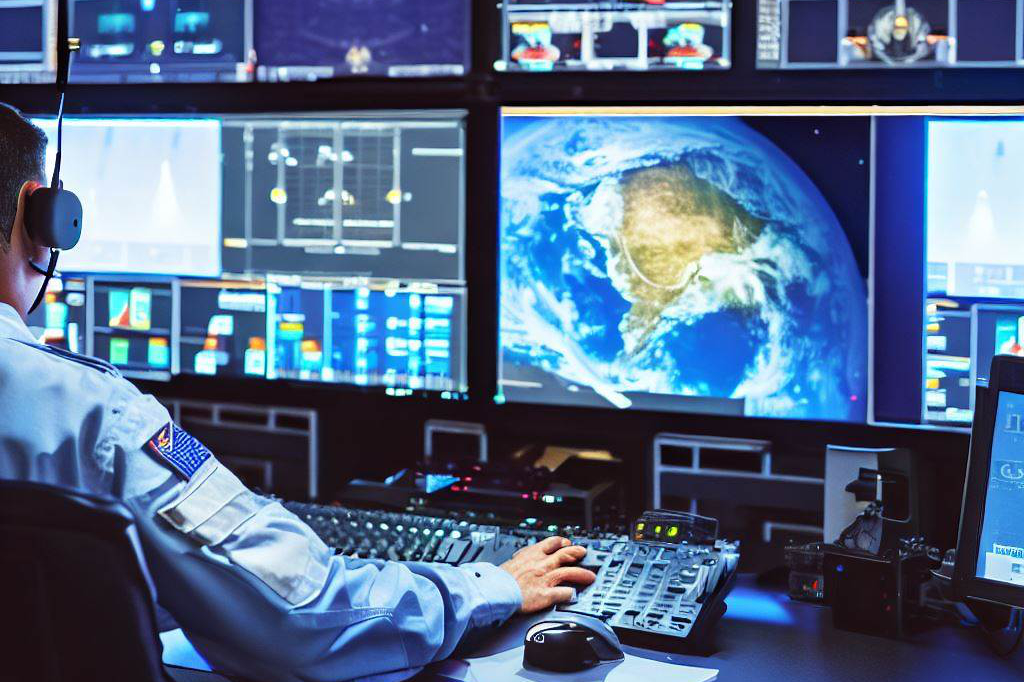Space exploration is one of the greatest endeavors of humanity. It has led to numerous discoveries, technological advancements, and inspired generations of people to dream big and achieve great things. Space education plays a vital role in this endeavor, as it equips students with the knowledge and skills necessary to contribute to the field and pursue careers in space-related industries.
Space education encompasses a diverse range of subjects, including
- astronomy,
- astrophysics,
- aerospace engineering,
- planetary science,
and more. By studying these fields, individuals can gain an understanding of the complex workings of our universe and learn how to design and develop spacecraft or conduct missions that explore our solar system.
The Importance of Space Education
In addition to inspiring curiosity about our universe, space education is crucial for continued progress in space exploration. By gaining an understanding of the science behind space travel and the technology used in space missions, individuals can contribute towards advancements in fields such as propulsion systems or materials science, which are often used in spacecraft design. They can also develop new theories that help solve problems related to long duration human life support or have wide-ranging applications on Earth.
Moreover, through their work on space missions, they help build bridges across cultures by working with colleagues from different countries on international projects such as the International Space Station (ISS). They also develop critical-thinking skills that will be invaluable throughout their lives – whether they choose a career path within the aerospace industry or not.
Potential Career Paths

A degree in space-related studies can open up many rewarding career possibilities for students who are passionate about exploration.
These include being an astronaut responsible for conducting research while orbiting Earth or exploring deep space; becoming an engineer responsible for designing spacecraft; being a data analyst where you work with results from satellites that study different phenomena such as natural disasters, sea level rise, and climate change; or studying celestial objects in the fields of astrophysics or planetary science.
Another potential career path is being a mission control specialist responsible for monitoring spacecraft from Earth-based control centers.
The field of space education enables individuals to embark on an exciting and challenging career that offers opportunities to work with the latest technology, push the boundaries of what humans know about our universe, and contribute towards making life better on Earth. The possibilities are endless, and space education is the first step towards exploring these fascinating careers.
Astronaut: Exploring the Final Frontier
Requirements to become an astronaut
Becoming a (professional) astronaut is a highly competitive process that requires extensive education and experience. The basic requirements include having a bachelor’s degree in a science, technology, engineering, or math (STEM) field and at least three years of related professional experience. Applicants must also pass a rigorous physical examination and have excellent eyesight, hearing, and cardiovascular health.
In addition to these basic qualifications, candidates must possess other important qualities such as exceptional problem-solving skills, strong communication abilities, and the ability to work well in teams. They should also be able to handle long periods of isolation and confinement without experiencing psychological distress.
Training and preparation for space missions
Once selected as an astronaut candidate, individuals must undergo extensive training that can last up to two years. This training includes exposure to microgravity through parabolic flights or underwater simulations. Candidates will also learn how to operate spacecraft equipment properly while wearing bulky spacesuits.
Other aspects of training include learning about the International Space Station (ISS) operations and maintenance procedures. Additional coursework may cover subjects such as orbital mechanics, robotics operations, space medicine, and international space policy.
Job responsibilities and duties while in space
The primary job responsibility of an astronaut is to conduct scientific research while on board the ISS or other spacecraft. This research may involve carrying out experiments in biology, physics, or medical science fields that benefit humanity’s understanding of life itself.
However, astronauts are also responsible for conducting routine maintenance tasks on the spacecraft itself, such as fixing plumbing systems if they break down or diagnosing technical problems with onboard computer systems. Overall, becoming an astronaut takes years of hard work but can be rewarding both professionally and personally for those who pursue this career path.
Aerospace Engineer

The Education and Skills Required for This Career Path
To become an aerospace engineer, a Bachelor’s degree in aerospace engineering or a related field is generally required. However, some employers may also look for a Master’s degree as well.
During their education, students learn about aerodynamics, propulsion systems, thermodynamics, and other elements of flight and space travel. Courses in mathematics and computer science are also important for this career.
In addition to formal education, there are a number of skills that aerospace engineers need to have. They must be able to solve complex problems quickly and efficiently, work well in teams or independently as needed, communicate effectively with colleagues from different fields of expertise (such as physicists or software engineers), and be knowledgeable about the latest technologies and research in their field.
Designing and Building Spacecraft, Rockets, and Other Technology Used in Space Exploration
One of the key responsibilities of an aerospace engineer is designing spacecraft that can travel safely through space. This involves creating blueprints for structures that can withstand the harsh environment of space while also carrying scientific instruments or other payloads.
The rockets that lift these spacecraft into orbit also require careful design work from engineers. The rocket must have enough thrust to overcome gravity but not so much that it damages the payload or causes instability during flight.
In addition to spacecraft and rockets themselves, aerospace engineers also design many other technologies used in space exploration. For example, they may design life-support systems needed by astronauts in space or develop new materials with properties such as thermal or radiation resistance.
Collaborating with Other Professionals to Ensure Safety and Success of Missions
Aerospace engineering is a highly collaborative field where multiple professionals contribute towards achieving mission success. In addition to fellow engineers specializing in different areas such as structural engineering or control systems engineering; scientists who have expertise in specific space-related areas such as astrophysics or planetary science; mathematicians who can assist with computing complex trajectories; and software developers who write code for mission-critical systems are all required to collaborate.
The successful development of aerospace technology depends heavily on the collaboration between these professionals. Aerospace engineers must work closely with others to ensure safety and mission success, as small errors in design or implementation could mean the failure of a particular mission.
Additionally, communication is critical when working on complex missions, as it ensures that everyone is on the same page about project goals, timelines, and other important details. Therefore, it is essential that aerospace engineers possess strong communication skills in addition to their technical expertise.
Astrophysicist

Exploring the Depths of the Cosmos
Astrophysics is an area that encompasses the study of various celestial objects, such as planets, stars, galaxies, and others. It involves understanding how these objects interact with each other and investigating the physical properties of celestial matter.
Astrophysicists use a wide range of tools to conduct their research, including telescopes, satellites, and other instruments. One of the most intriguing aspects of astrophysics is its focus on exploring some of the biggest mysteries in our universe.
Scientists studying this field delve into topics such as dark matter, black holes, and the origins of our universe. They use mathematical models to make predictions about what they will find in space, and then they use their creativity to design experiments that can test those theories.
Astrophysics is a constantly evolving field, with exciting new discoveries being made all the time. As researchers continue to explore deeper into space with new technology that allows them to collect more detailed data than ever before, we are sure to learn even more about our universe’s history and gain valuable insights into its future.
Conducting Research
Astrophysicists work in many different areas, conducting vital research on everything from supernova explosions to galaxy formation. They analyze data collected from telescopes and satellites equipped with advanced sensors capable of measuring a wide range of phenomena across vast distances.
One common area where astrophysicists focus their efforts is investigating black holes’ properties – mysterious objects whose gravitational pull is so strong it bends space-time around them. Black holes are fascinating because they allow scientists to explore fundamental principles like Einstein’s theory of relativity while probing some of the most extreme conditions in our universe.
Another crucial area for astrophysicists is studying dark matter – an invisible substance believed to account for much more mass than can be explained by the matter we can see. Scientists hope that by studying dark matter and its effects on visible objects in space, they may be able to gain insight into the universe’s nature and evolution.
Career Opportunities
Astrophysics is a highly specialized field, and jobs are competitive. Still, those who pursue a career in this area can find work in a variety of different roles. They may work for research institutions, government agencies like NASA or private companies involved in developing space-related technologies.
Astrophysicists with strong research skills can work as scientists at universities or other academic institutions, where they have access to resources like telescopes and supercomputers. They may also choose to teach courses on astrophysics or related fields.
Overall, astrophysics is a dynamic field with many opportunities for those who are passionate about exploring the cosmos. It offers both intellectual challenges and a chance to make significant discoveries that can help us better understand our place in the universe.
Planetary Scientist

Exploring Our Solar System and Beyond
Planetary scientists are professionals who study planets and other celestial bodies within our solar system and beyond. Their work involves analyzing the geological features, atmospheric conditions, and potential habitability of these planets.
These scientists utilize various instruments, such as telescopes, satellites, and probes, to collect data about these planets. With new technologies being developed every day, planetary scientists are now able to explore even further into our solar system than ever before.
One of the most exciting aspects of being a planetary scientist is that you get to discover new worlds. The more we learn about planets beyond Earth, the more we understand the origins of our own planet.
For example, by studying Mars’ past climate and geology, scientists can gain a greater understanding of how Earth’s climate has changed over time. In addition to studying our own solar system’s planets, planetary scientists also study exoplanets, or planets beyond our solar system, that are potentially habitable.
Studying Geological Features and Atmospheric Conditions
Planetary scientists study geological features such as craters, mountains, valleys, and lava flows on various celestial bodies in our solar system, like moons or asteroids. They examine these geological features for clues on the history of those bodies, including how they formed or if there was ever any form of geological activity on them in the past.
They also investigate atmospheric conditions on these celestial bodies, studying factors such as temperature variations or chemical composition of gases in their atmosphere. By examining atmospheric conditions on other planets in the solar system, they can better understand processes like weather patterns or impact events that affect them.
Astrobiology – The Study Of Life Beyond Earth
The field known as astrobiology combines astronomy with biology, seeking to discern whether there is life outside Earth capable of surviving under different environmental conditions than those found here on Earth. Planetary scientists study astrobiology as it is pertinent to the search for life on other planets.
They investigate whether a celestial body is habitable, whether it has the potential to support life, or if signs of life can be detected. Planetary scientists examine areas where conditions for life may exist, including places with water and organic molecules, such as hydrothermal vents deep in the oceans or areas beneath the surface that are shielded from radiation.
Such studies help not only to better understand our planet’s history and potential future trajectory but also to shed light on the possibility of past, present, and future extra-terrestrial life. Planetary science is a fascinating field that delves into the mysteries of our universe.
The study of planets within our solar system and beyond can lead scientists to discover new worlds, gain greater insight into our own planet’s history, and even potentially discover new forms of life outside Earth. This field combines various scientific disciplines such as geology, physics, biology, and chemistry, making it an interdisciplinary field that offers many opportunities for those who love science.
Mission Control Specialist

Keeping an Eye on Things: Monitoring Spacecraft from Earth
Mission control specialists are the eyes and ears of space missions, monitoring spacecraft during their journeys from Earth-based control centers. They are responsible for ensuring that everything is going according to plan and making adjustments when necessary.
This involves monitoring telemetry data, reviewing visual feeds, and communicating with astronauts in space. The specialist’s role is especially crucial during critical situations such as take-off or docking procedures.
In these situations, the specialist must be able to make quick decisions based on the information available to them. Their ability to work under pressure and make informed decisions quickly makes them a vital part of any space mission.
Staying Connected: Maintaining Communication with Astronauts in Space
Another key responsibility of mission control specialists is to maintain communication with astronauts while they’re in space. The communication protocol is complex and requires specialized equipment such as radio antennas, high-frequency amplifiers, and other necessary hardware.
The specialists must also be proficient in speaking in a technically specific language that ensures clear communication with astronauts while maintaining clarity when not using technical jargon. They must also ensure that all messages exchanged between ground control and crew members are confidential since some sensitive information may not need public disclosure until an appropriate moment arrives.
Working Together for Mission Success: Coordinating with Other Professionals
Mission control specialists work closely with several other professionals involved in a space mission, including engineers, scientists, doctors, public relations officers, etc., to ensure successful mission completion. They collaborate closely on all aspects of the mission, from inception through execution.
Specialists contribute input into every phase of a mission by providing suggestions grounded on their observations as well as analyzing feedback collected by others involved in the process. Team collaboration ensures that everyone understands the risks associated with missions as well as mitigate outcomes if something takes place that was not anticipated.
Final Thoughts
The field of space education offers many exciting opportunities for those interested in science and technology. From astronaut to mission control specialist, there are a variety of career paths available that contribute to the success of space missions.
By pursuing a career in space education, individuals will have the opportunity to work on cutting-edge projects, conduct groundbreaking research, and help shape the future of our understanding of what lies beyond our world. The unique challenges and opportunities inherent in this field make it an excellent option for those who enjoy working under pressure and are passionate about discovering new things.

C M, a seasoned editor, journalist, and consultant, is deeply fascinated by the convergence of technology, space, and the future of humanity.
With a particular interest in transhumanity, futurology, and the philosophical and ethical dimensions of these domains, C M serves as the lead contributor to SpaceSpotlight and TranscendSphere.
When not penning insightful articles on these rapidly evolving fields, C M indulges in their love for podcasts and books, proudly embracing their status as a ‘Happy Nerd Extraordinaire!’



